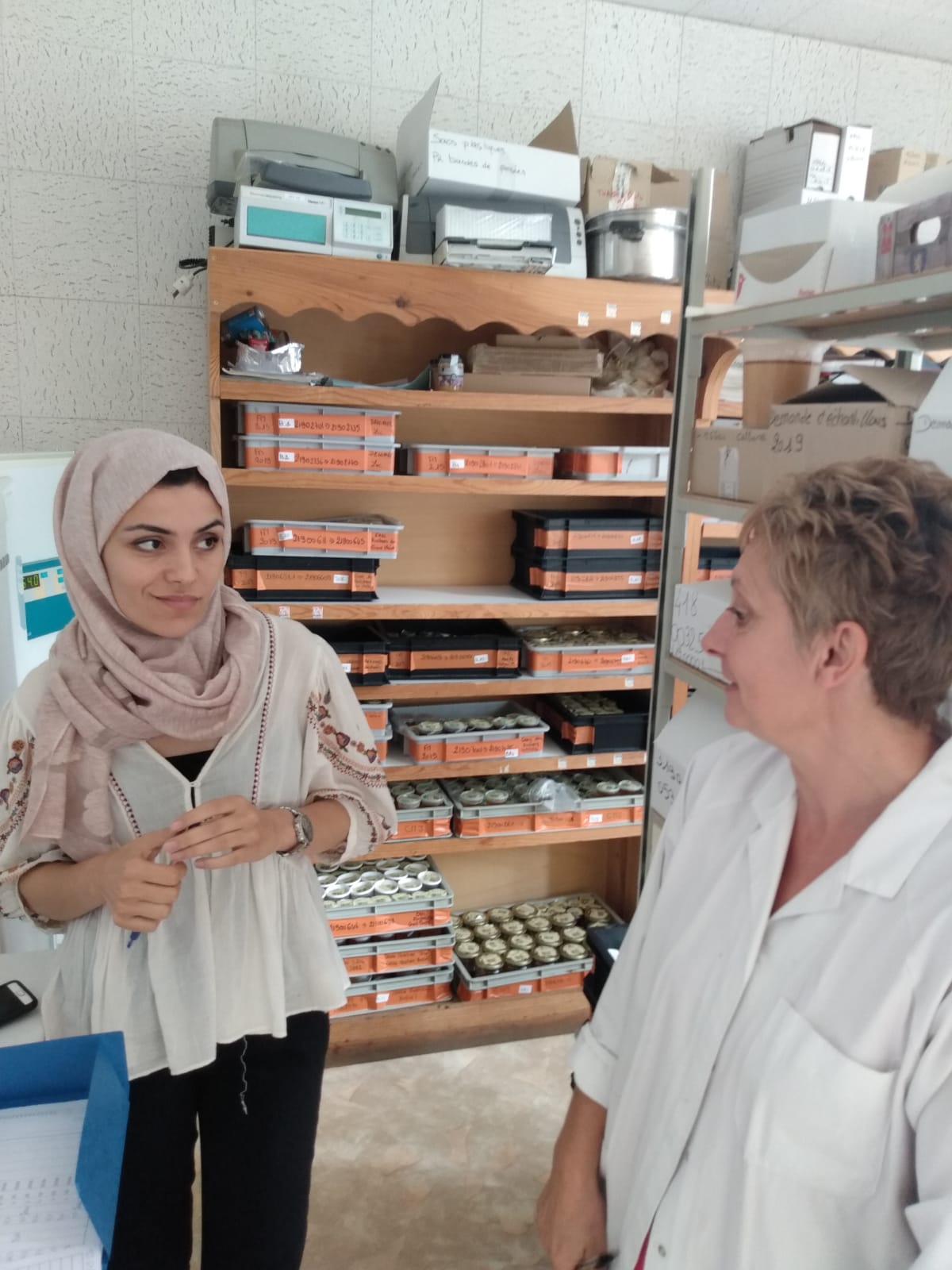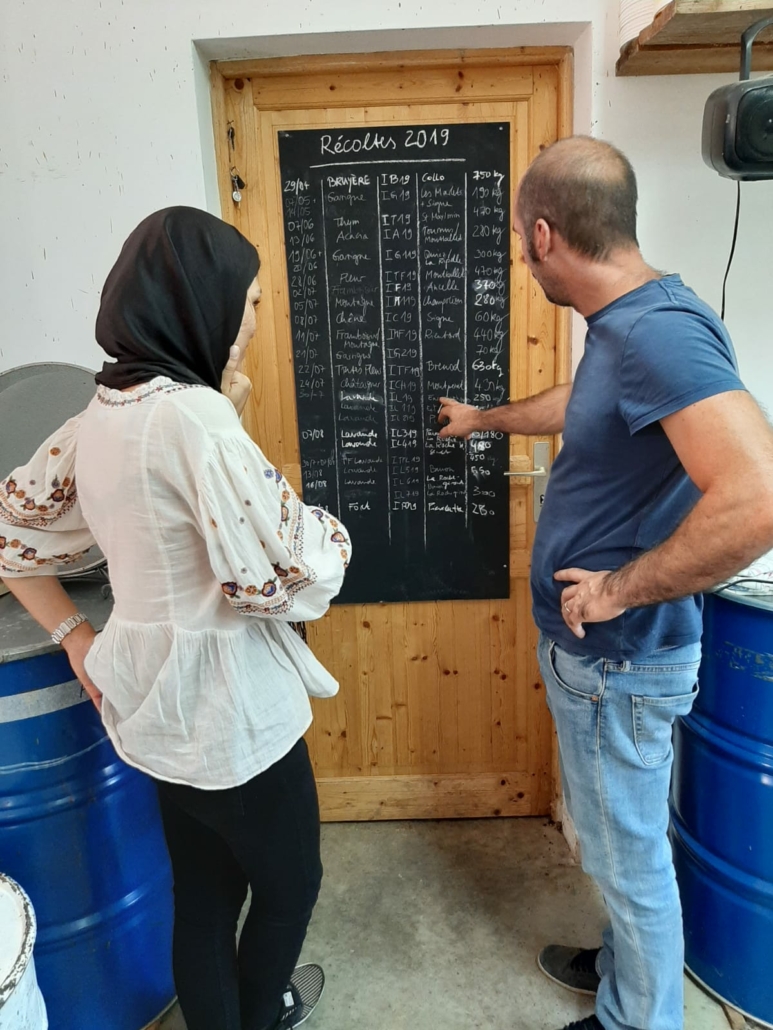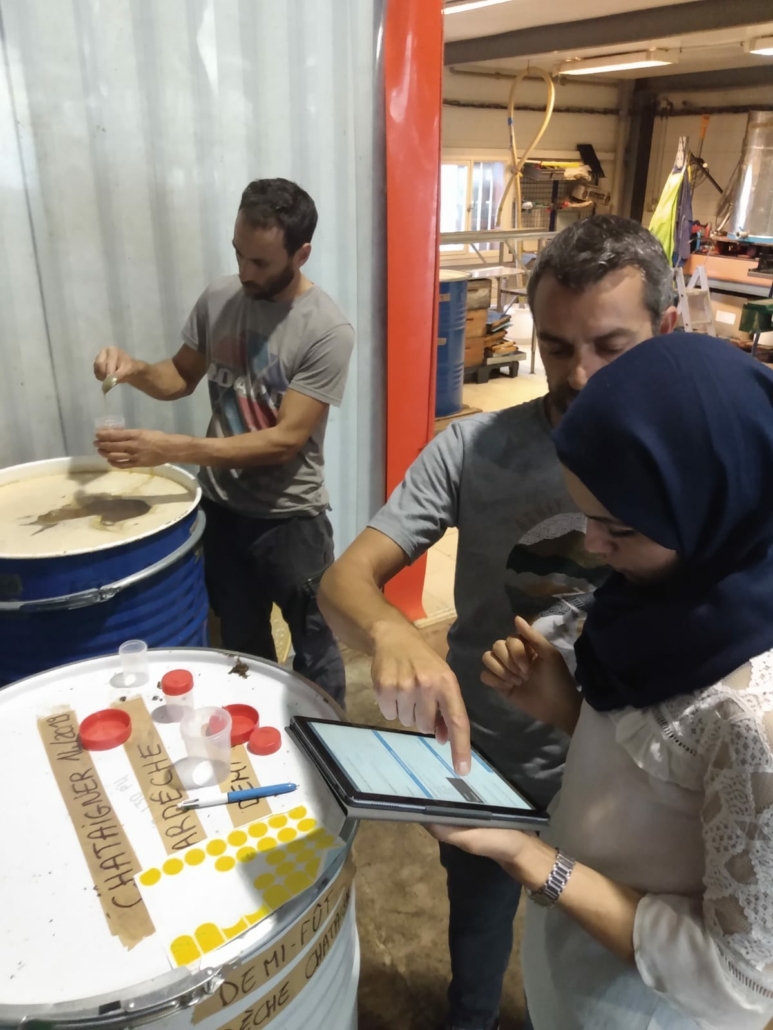In 2015, a small group of Algerian professional beekeepers, committed to responsible and quality beekeeping at the national level, created the National Association of Professional Beekeepers – Anap. In 2018, in order to lead its technical projects and its associative life, the young organization recruited an animator. To enhance her skills, Anap and its French partners decided to organize a study trip to France for her. The trip was supervised by Adapi (Association pour le Développement de l’Apiculture Provençale) and Fert.
After two weeks spent between September and October 2019 meeting French collective beekeeping structures, Meriem Hammal, the animator of Anap, testifies.
Fert: It was your first trip to France, what were your expectations beforehand?
Meriem Hammal (MH): This trip was above all an opportunity to meet other people doing the same work as me. In Algeria, there are few farmers’ organizations and even fewer animators, at least not to my knowledge. Being able to exchange with my counterparts, in some cases my peers, about their daily lives, the management of problems and their relationship with leaders was a good way to find answers to some of my questions.
Then, since Anap is currently reflecting on the notion of quality of Algerian honeys, beekeeping practices and product features, it was interesting to understand the experiences of different French beekeeping structures (groups, unions and cooperatives) in the implementation of a quality approach.
Fert: What do you remember from these 17 days spent in France? What surprised you?
MH: I could meet several stakeholders of the French beekeeping sector: beekeepers, cooperatives and producers’ groups, trade unions, researchers and packers. To summarize this long trip and these numerous encounters, I found the French honey industry very organized with a diversity and complementarity of stakeholders from the hive to the consumer.
First, I was surprised by the similarity of problems faced by French beekeepers compared to Algerian beekeepers, i.e. unfair competition from imported honey, deterioration in the health of bee population and climate change.
I was also astonished by the ability of collective beekeeping structures, led by beekeepers, to sit around the table to analyze the difficulties and to imagine and implement solutions, and more specifically the importance of well-qualified animators whose role is to coordinate activities and support leaders in their missions.
On the technical level, I discovered and understood how several quality approaches had been implemented, via different quality signs from private label to PGI. This understanding was completed by my participation in control and analysis processes, among beekeepers and packers on the PGI “miel de Provence” and the brand “Gelée Royale Française”.
I note that these approaches and processes are demanding but remain within the reach of beekeepers. In addition, to work and raise consumers’ trust, quality approaches are based on the good will of the stakeholders, and in the first place, the beekeepers.
Fert: What will you do when you get back?
MH: First of all, I have a lot of paperwork waiting for me!
I realize that the convergence of interests is the key to seek progress within a farmers’ organization such as Anap, and to encourage the commitment of leaders and members. This is a fundamental point to work with Anap leaders, because some projects have been designed and started with too many actors with different objectives.
I also think I can see more clearly now, on how to set up a quality approach and its implications in Algeria and what roadmap to imagine. It seems obvious to me that some Algerian honeys have the potential to move upmarket, such as jujube, euphorbia or wild carrot honeys.
Other elements still need to be considered for the future, in particular the evolution of our association, its needs in human resources and its capacity to evolve in the same direction as the French structures I visited.





